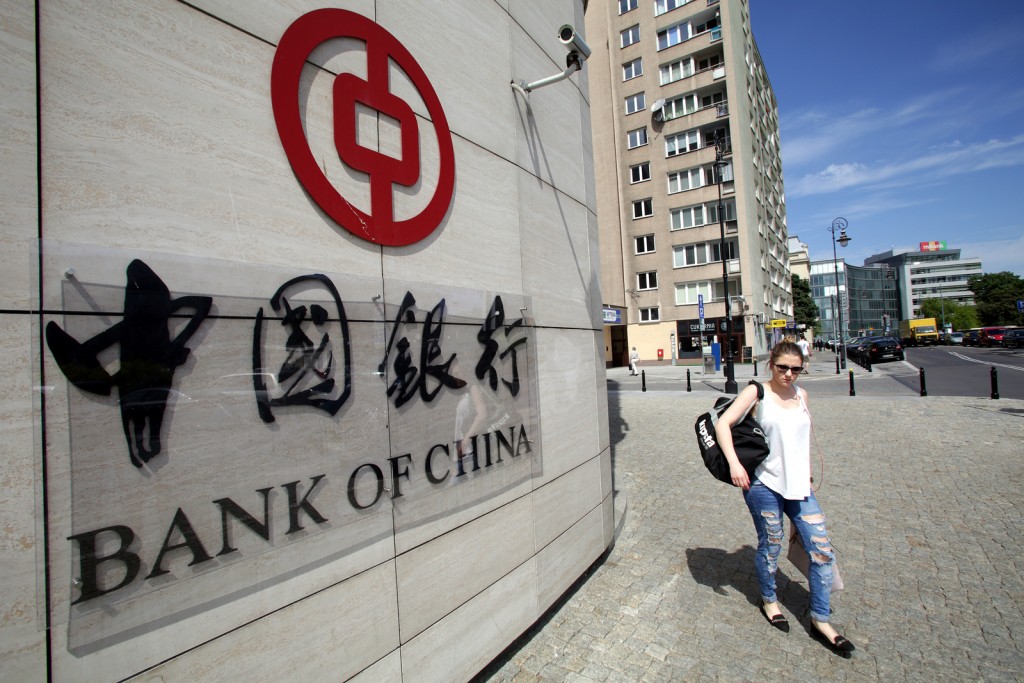7 Reasons why Large Financial Institutions and Banks have a Natural Advantage in Wealth Management Business
Wealth Management is a long-term business built by decades of trust, faith and goodwill with customers. For banks, a mis-step could lead to a bank-run and a collapse.
Some of the oldest hand in Wealth Management are the insurance companies. They pool assets of every possible individual, assess risks, invest the funds for long-term, sometimes for 20 – 40 years, and share the gains (profits) alongside the insured amount. As the insurance funds pooled involves every public individual, governments heavily regulate the insurance industry to protect the interests of consumers.
Given the heavy regulation in wealth management business, small financial firms are often unable to look beyond a 5 or 10 years business horizon compared to insurance companies which could invest over 20 or 50 years, we look at 7 reasons why large Financial Institutions and Banks have a natural advantage in Wealth Management businesses:
No. 1 Trust

Customers naturally trust large Banks and Financial Institutions. Every Monday when business starts, their operations will start. There is always a call center or hotline available, and someone to talk to.
Customers believe they will remain big and strong because these institutions have the inherent support of the governments and central banks.
Common Considerations:
- Who owns the banks and financial institutions? Government and powerful people?
- If there is a crisis, will the government back the organization?
- Since there are million of customers, there would be safety in numbers, wouldn’t it be?
No. 2 Security – They are Larger and Safer

Banks and Financial Institutions are heavily regulated. It is nearly impossible to get a full banking or capital market license in most countries, unless you are an established financial institution or have the backing of the government.
The process is heavily regulated with requirements for licensing, compliance, legal, risk managements, operations, large capital outlay and screening of key personnels. In addition, the institution has to comply with local and global regulatory requirements. The extend of this setup is resource intensive, and therefore provides enormous security to customers (All measures were designed to protect consumers, impart best practices and prevent the financial institution from failing or being mis-managed)
Read More: 8 Important Global Financial Frameworks to know
No. 3 Systemic Risks – The Unlikely Event

The larger the bank or financial institutions, the bigger their systemic risks. What is systemic risk? An event that could trigger a collapse of an industry or the economy.
If you accumulated life-long savings and hard-earned money, there is every reason to park your wealth in the “safest and trusted institutions” you can find. Or would you prefer to place money in a smaller firm for slightly higher interest rates?
Frequency of Economic and Global Economic Crisis:
- An Economic Crisis occurs every 3.74 years
- A Global Economic Crisis occurs every 12.88 years
Learn More: List of Economic Crisis from 1900 – 2015
No. 4 Pricing – The Market Maker

Being large has a clear advantage on pricing. The largest banks or financial institutions typically influence the pricing in the market, such as the interbank rate – the rate at which banks lend to one another.
They influence the fees / layered fees / trailer fees on products such as Unit Trusts, Derivatives and Insurance. They are able to lower or increase the fees to gain market share or to gain higher revenue. Since there are only a handful of large banks or financial institutions in most countries, customers tend to be sticky with their relationship with them.
No. 5 Wide Range of Products and Services

Being large means they have the economics of scale to create more products and services. They are also able to successfully launch products and services faster and better than a lot of small firms. Their sheer infrastructure, client base and outreach means they can out-muscle any small firms quickly.
- Deposits and Loans
- Transactions & Remittances
- Credit Cards
- Wealth Management & Investment Services
- Custodian Services
- Access to wide banking network / cash withdrawal machines
- Rewards, Lifestyle and more …
Related Articles:
- List of Important Asset Classes
- 7 Key Investment Products in Personal Banking
- Top 2 Products to build a Strong Relationship with Clients in Retail Banking
- How do you convince a hard-core deposit client to look at wealth management products?
No. 6 Word-of-Mouth

Millions of customer base means a higher chance of someone sharing the customer experience, the products and services they use. It is reactive marketing.
Compared to a small firm of only a few hundreds or thousands of clients, they would need to spend massive dollars to get their products and services into the market.
No. 7 It is Going to be Around for a Long Long Time

Or the number no. 1 reason why large banks and financial institutions have a natural advantage in wealth management business – they will be around for a long long time.
In a small firm, the leadership is usually helmed by one or a few key guys. Most often, they are of the same age group. What if they fell ill and become incapable of running the company? But if they decide to leave? What if they start to do things differently?
Related Articles:
- Bernie Madoff: The Scamming of America – The $50 Billion Scheme
- Rogue Trader
- 20 Traders who lost more than a Billion
This post leadership renewal problems. Customers and practicing Wealth Managers are worried about the sustainability of the entity.
For example, companies like Berkshire Hathaway rely heavily on Warren Buffett while PIMCO (Pacific Investment Management Co.), saw assets declining 10% following the departure of Bill Gross. Assets fell from $1.87 trillion to $1.68 trillion.
[The firm, based in Newport Beach, California, suffered the worst year of withdrawals in the history of fund management amid a leadership shakeup and as performance at some strategies stumbled. Investors pulled $150.2 billion from Pimco’s U.S. mutual funds in 2014, a year during which it lost both of its co-chief investment officers, Gross and Mohamed El-Erian.] Read More: Pimco’s Assets Declined 10% in Quarter After Gross ExitThis worry, would be less in large banks and financial institutions. They are able to attract talents and endless supply of applicants for most positions, and find replacements quickly for staffs exits.
- 5 Reasons why Wealth Management is harder in low-tax countries
- 8 Reasons why Wealth Management has become Important in Capital Markets
- How do Wealth Managers compete against Low Cost Providers
These are 7 reasons why large banks and financial institutions have a natural advantage in Wealth Management business.
Restricted:
Related Articles:
- 5 Reasons why Wealth Management is harder in low-tax countries
- 8 Reasons why Wealth Management has become Important in Capital Markets
- How do Wealth Managers compete against Low Cost Providers
- 14 Reasons why most Portfolio Managers rarely set up their own Fund Management Company
- 7 Important Risks to manage for Clients
Sign Up / Register
Caproasia Users
- Manage $20 million to $3 billion of assets
- Invest $3 million to $300 million
- Advise institutions, billionaires, UHNWs & HNWs
Caproasia Platforms | 11,000 Investors & Advisors
- Caproasia.com
- Caproasia Access
- Caproasia Events
- The Financial Centre | Find Services
- Membership
- Family Office Circle
- Professional Investor Circle
- Investor Relations Network
Monthly Roundtable & Networking
Family Office Programs
The 2025 Investment Day
- March - Hong Kong
- March - Singapore
- July - Hong Kong
- July - Singapore
- Sept- Hong Kong
- Sept - Singapore
- Oct- Hong Kong
- Nov - Singapore
- Visit: The Investment Day | Register: Click here
Caproasia Summits
- The Institutional Investor Summit
- The Investment / Alternatives Summit
- The Private Wealth Summit
- The Family Office Summit
- The CEO & Entrepreneur Summit
- The Capital Markets Summit
- The ESG / Sustainable Investment Summit

































